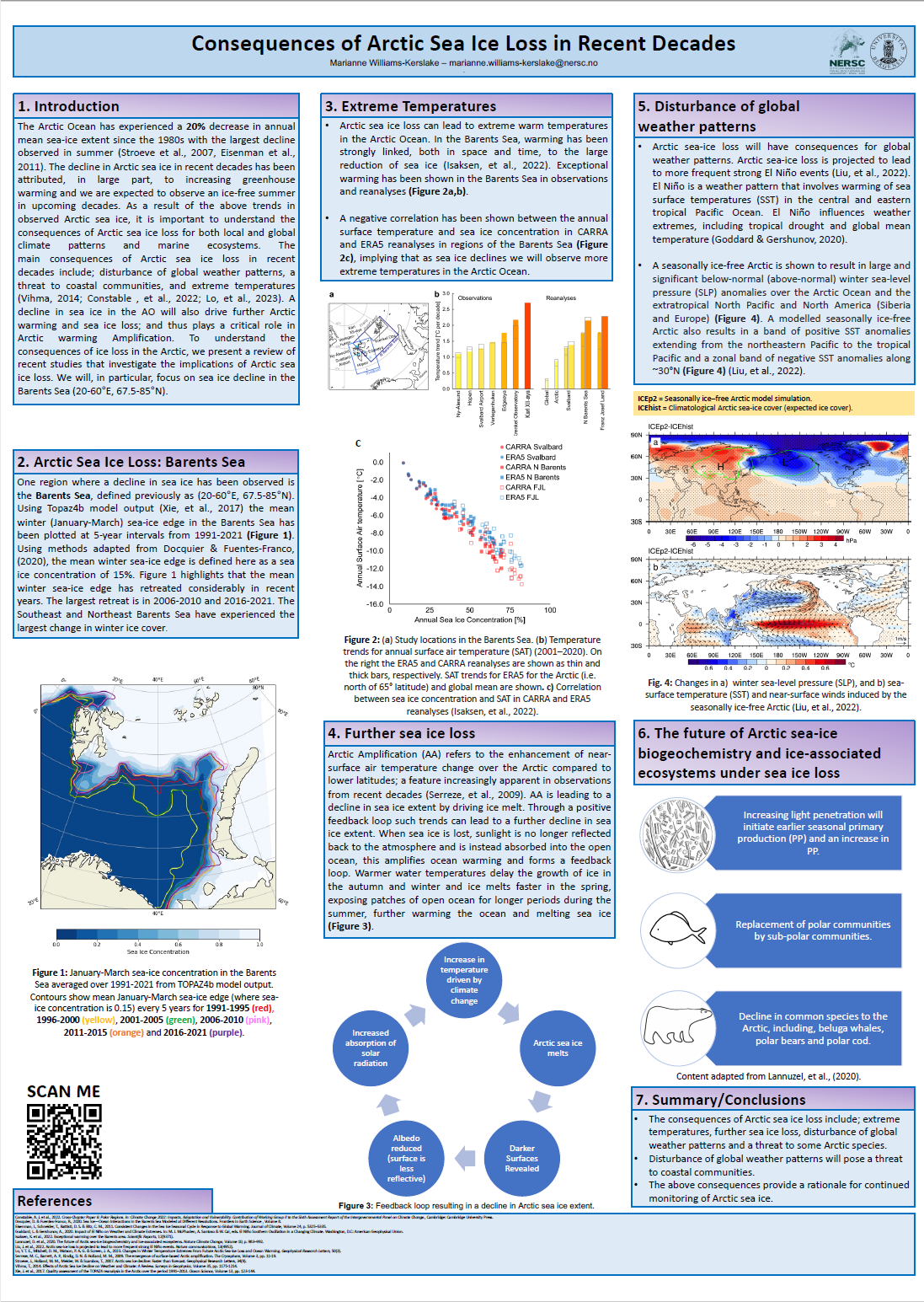Abstract
Recent rapid sea-ice reduction in the Arctic Ocean (AO) has been well documented in model simulations, observations, and reconstructions. The decline in Arctic sea ice in recent decades has been attributed, in large part, to increasing greenhouse warming and we are expected to observe an ice-free summer in upcoming decades. As a result of the above trends in observed Arctic sea ice, it is important to understand the consequences of Arctic sea ice loss for both local and global climate patterns and marine ecosystems. To understand these consequences, we present a review of recent studies that investigate the implications of Arctic sea ice loss. We will in particular focus on sea ice decline in the Barents Sea (20-60°E, 67.5-85°N). Changes to Atlantic Water inflow in this region play a significant role in determining sea ice cover. Through the case study on the Barents Sea, we conclude that the main consequences of Arctic sea ice loss in recent decades include; disturbance of global weather patterns, a threat to coastal communities, and extreme temperatures. We also demonstrate how a decline in sea ice in the AO, will drive further Arctic warming and sea ice loss due to Arctic Amplification. The above consequences provide a rationale for continued monitoring of Arctic sea ice.

